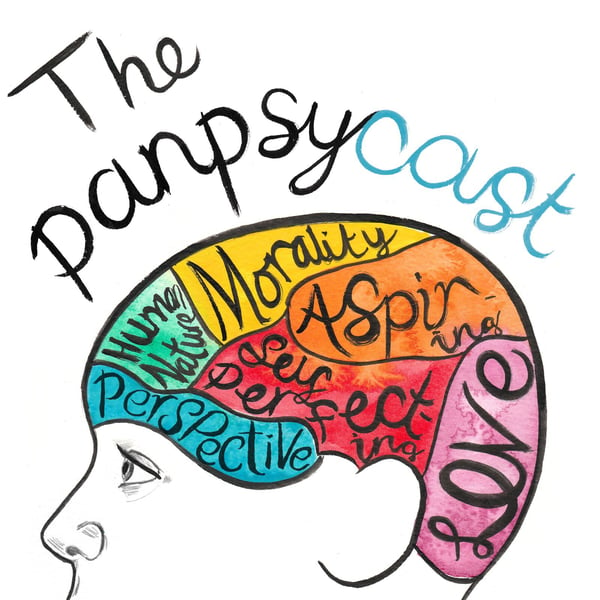Episode 31, Ludwig Wittgenstein with Prof. Richard Gaskin (Part II - Philosophical Investigations)
The Panpsycast Philosophy Podcast
Jack Symes | Andrew Horton, Oliver Marley, and Rose de Castellane
4.8 • 604 Ratings
🗓️ 14 January 2018
⏱️ 62 minutes
🧾️ Download transcript
Summary
This episode is proudly supported by the New College of the Humanities. To find out more about the college and their philosophy programmes, please visit www.nchlondon.ac.uk/panpsycast. Everything you could need is on www.thepanpsycast.com! Please tweet us your thoughts at www.twitter.com/thepanpsycast. Ludwig Wittgenstein was an Austrian-British philosopher whose work focused on the philosophy of mathematics, logic, the philosophy of mind, and most notably, the philosophy of language.
Wittgenstein’s influence on the world of philosophy has been phenomenal. The study of philosophy was immensely important to Wittgenstein, not only as an academic discipline but as a form of therapy. In Ludwig’s own words, he describes philosophy as, "the only work that gives me real satisfaction". Wittgenstein’s work can be divided into an early period, exemplified by the Tractatus (our focus for Part I), and a later period, articulated in the Philosophical Investigations (which is our focus for Part II). Early Wittgenstein was concerned with the logical relationship between propositions and the world. He thought that by providing an account of this relationship, he had solved every philosophical problem. The later Wittgenstein rejected many of the assumptions of the Tractatus, arguing that the meaning of words is best understood as their use within a given language-game. Wittgenstein’s life and work are astonishing. His mentor, Bertrand Russell, described him as "the most perfect example I have ever known of genius as traditionally conceived; passionate, profound, intense, and dominating". Part I. The Tractatus Logico-Philosophicus (08:00 in Part I), Part II. The Philosophical Investigations (start of Part II), Part III. Further Analysis and Discussion (45:45 in Part II).
Transcript
Click on a timestamp to play from that location
| 0:00.0 | Part 2. The Philosophical Investigations |
| 0:16.4 | Wittgenstein, after writing the tractatus, left philosophy, having decided that he had nothing more to say. |
| 0:24.5 | Why did he return to Cambridge and return to philosophy? Well, there are several levels, I think, |
| 0:31.5 | on which one can answer that question. I mean, what he explicitly says is that he had come to realize |
| 0:36.9 | that the tractators contained grave mistakes. |
| 0:39.7 | And one of those mistakes was the one that we discussed last time, the doctrine of independence. |
| 0:44.7 | Elementary sentences are independent of each other. |
| 0:47.7 | That was initially, when he came to realize that that was wrong, and he wrote a little |
| 0:53.9 | article called Some Remarks on Logical |
| 0:55.7 | Form, which was published then to recant on that view. That was the initial spur to bring |
| 1:03.1 | him back to philosophizing. But I suspect that there were deeper reasons. I mean, he was a |
| 1:09.5 | natural philosopher. He'd taken a long break, |
| 1:11.7 | and he felt that it was time to get back to business. |
| 1:15.5 | How would you sum up the overall aim of the philosophical investigations? What's |
| 1:20.1 | this book about, if you were to give it a synopsis? Well, at a very general level, I would |
| 1:26.4 | say it's about the same thing as the |
| 1:28.2 | tractatus, namely how language bears on the world. What is the relationship between language |
| 1:33.9 | and the world? To what extent is the world a product of language? That's a very, very general |
| 1:39.7 | characterization. Of course, once you descend down into the mist and fog of detail, there are a lot of |
| 1:45.1 | differences. But at a general level, I think they're essentially trying to do the same thing. |
| 1:52.8 | One of the most iconic quotes from the philosophical investigations reads as follows, |
| 1:56.2 | for a large class of cases of the employment of the word meaning, though not for all, |
... |
Please login to see the full transcript.
Disclaimer: The podcast and artwork embedded on this page are from Jack Symes | Andrew Horton, Oliver Marley, and Rose de Castellane, and are the property of its owner and not affiliated with or endorsed by Tapesearch.
Generated transcripts are the property of Jack Symes | Andrew Horton, Oliver Marley, and Rose de Castellane and are distributed freely under the Fair Use doctrine. Transcripts generated by Tapesearch are not guaranteed to be accurate.
Copyright © Tapesearch 2025.

